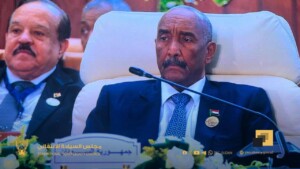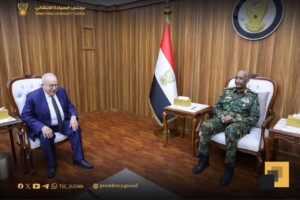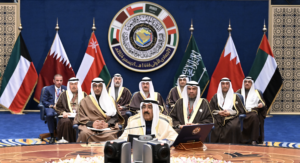‘Khartoum cause of peace talks impasse’: Sudan opposition
The Sudanese Congress Party holds the government’s delegation at the negotiating table in Ethiopia responsible for the collapse of talks on a cessation of hostilities with the Sudanese armed movements.
The Sudanese Congress Party holds the government’s delegation at the negotiating table in Ethiopia responsible for the collapse of talks on a cessation of hostilities with the Sudanese armed movements.
Omar Yousif El Digeir, the SCP chairman, told Radio Dabanga that the stalemate of negotiations between the government, the rebel movements in Darfur and in South Kordofan and Blue Nile is “unfortunate and frustrating”. “It means the continuation of war and more suffering for civilians in these regions, who have suffered the ravages of war, lack of food, and medicine.”
El Digeir closely follows the negotiations in Addis Ababa, under the watchful eye of the African Union mediation panel, after talks started last week. “The main reason for the collapse of the talks is the insistence of the government on older topics, that have been agreed upon in previous negotiations between the government and the armed movements.”
He claimed that the points of disagreement are foreign aid and the method of forming the committees in charge of relief aid distribution. During the negotiations the government “insisted” on imposing the Doha peace document of 2011, in which the main rebel movements refused to participate.
El Digeir said that what happened on Sunday means that a political solution to the armed conflict “has become so remote, that it is difficult to talk about it, and that the dialogue has reached a dead end”.
Sudan Appeal
The rebel SLM-MM and JEM in Darfur and the SPLM-N in the Two Areas are two of the main members of the Sudan Appeal, a coalition of armed and opposition forces. After signing the peace roadmap of the African Union High-level Implementation Panel (AUHIP), the Sudan Appeal and the Sudanese government started long-awaited negotiations last week, on a cessation of hostilities and the delivery of relief aid to people in areas affected by the ongoing fighting.
But the simultaneous talks by the government’s delegations with the SLM-MM and the JEM on one hand, and the SPLM-N on the other hand quickly ended on Sunday. Both sides accused the other of obstructing the possibility of reaching a ceasefire for the period of one month. The AU mediation team has proposed a compromise to the warring parties.
El Digeir: “The international community should bear witness to the government’s position and its intransigence. The international community should condemn it and put pressure on the government to comply with its responsibilities towards a serious dialogue.”











 and then
and then